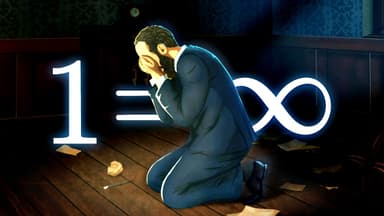The Rise and Fall of a Scientific Star
I still remember the excitement around Dr. Hwang Woo Suk's groundbreaking stem cell research, a promise of miracles that turned into a web of deception and ethical breaches, leaving a trail of shattered trust and human cost.
This story reveals how ambition, pressure, and oversight failures led to one of the biggest scandals in science, where the pursuit of glory overshadowed truth and safety.
TL;DR
I joined Hwang's lab, drawn to his "family" culture and the dream of stem cell breakthroughs, only to witness grueling conditions and subtle pressures that hinted at deeper ethical issues.
As allegations of paid egg donations surfaced, I uncovered the exploitation of donors and the human toll, raising questions about consent and the real cost of rapid scientific progress.
The 2005 paper's claims unraveled through whistleblower tips, revealing fabricated data and a toxic lab environment that forced researchers to bend rules for success.
Exposes by journalists and investigations exposed the fraud, leading to public backlash and Hwang's downfall, yet his supporters fought back, highlighting societal blind spots.
In the end, reforms emerged from the chaos, but the scandal left me reflecting on how unchecked ambition can endanger lives and erode scientific integrity.
In 2005, I was part of Dr. Hwang Woo Suk's team, a group that felt like a family under his leadership, though it often meant grueling hours and immense pressure. Hwang, dubbed the "Korean Elvis," had built a mythos around his work, promising revolutionary stem cell advancements that could win Korea its first Nobel Prize. His lab at Seoul National University operated unconventionally, with over 100 researchers working tirelessly, many from less prestigious schools, driven by desperation to prove their worth in a rigid hierarchy.

The daily routine was brutal; we started at 5 a.m., handling tedious tasks like egg extractions in slaughterhouse-like conditions, all while earning meager salaries. Hwang directed us remotely, often from a temple, giving vague commands that left us to fill in the gaps. This dynamic extended to discipline, where even minor infractions, like being late with a fever, led to public humiliation and tearful apologies.
Despite the hardships, the lab's culture was normalized in South Korea, where long hours were a badge of honor. Hwang's narrative painted our sacrifices as key to Korea's leadership in stem cells, a story that Western scientists bought into for potential life-saving benefits. But whispers of ethical issues grew louder, especially around the sourcing of egg cells for somatic cell nuclear transfer (SCNT), a process notorious for its low success rate and need for hundreds of eggs.
Early concerns came from organizations like Womenlink, questioning how Hwang acquired over 200 eggs for his 2004 paper with just 16 listed donors. The ethical debate centered on the risks to donors, including health complications, and the possibility of illegal payments that exploited financially vulnerable women. In South Korea, paying for eggs was in a legal gray area at the time, but the lack of informed consent was undeniable, turning women into what critics called "egg factories."

As I delved deeper, I learned of cases where donors faced side effects like infections and infertility, all without proper warnings. A Nature reporter's investigation revealed that some of our own team members, including graduate students, had been subtly coerced into donating, violating international ethical standards like the Declaration of Helsinki. This coercion fit the lab's toxic environment, where personal sacrifices were expected for the greater good.
The turning point came with Hwang's 2005 paper, claiming 11 stem cell lines, which I suspected was fraudulent due to technical impossibilities and his obsession with accolades. Whistleblowers, including myself, shared evidence with investigative programs like PD Notebook, exposing paid donations and data fabrication. We traced illegal egg brokers and interviewed donors who were misled about their eggs' use, uncovering a pattern of exploitation.
Hwang's response was denial, backed by media and politicians who defended him as a national hero. Public polls showed widespread sympathy, with many viewing criticisms as unpatriotic. Yet, as more evidence emerged—duplicate images in the paper and confessions from team members—the facade cracked. International collaborators like Gerald Schatten distanced themselves, and investigations by Seoul National University confirmed both papers were fraudulent.

The fallout was swift: papers retracted, licenses revoked, and Hwang indicted on fraud and embezzlement charges. His actions, including laundering grants and making suspicious payments, highlighted systemic failures in oversight. Reforms followed, strengthening bioethics laws and compensating donors, but the scandal's shadow lingered, showing how ambition can corrupt science globally.
In the end, this episode left me with a profound sense of loss, as the hope for stem cell miracles was overshadowed by the real human suffering it caused, reminding us that ethical shortcuts rarely lead to lasting progress.
Reflecting on these events, the scandal underscores the need for vigilance in science, where unchecked ambition can harm individuals and society, yet it also sparked reforms that may prevent future deceptions and pave the way for safer innovations.
Key Takeaways
Hwang's lab exploited researchers and donors under a "family" culture, leading to ethical breaches in stem cell research.
Illegal egg donations and lack of informed consent revealed the human cost behind fraudulent scientific claims.
Whistleblowers and investigations exposed data fabrication, resulting in paper retractions and legal consequences.
Societal and institutional failures amplified the scandal, prompting reforms in bioethics oversight worldwide.











